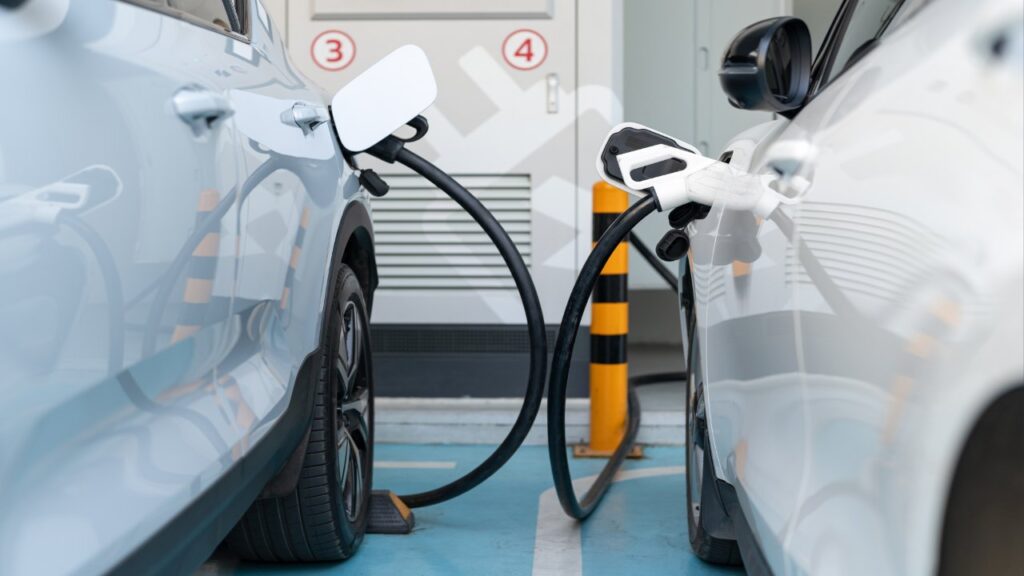All of the biggest global markets experienced a massive surge in EVs sales in 2023 in comparison to the year prior to that.
While it might seem obvious, but we shall dive deep into the 5 prominent reasons why EV sales are rising globally. There are various aspects to decipher this situation. EV technology is still in its infancy. Therefore, a natural progression is meant to be there. Also, there are hardly any other feasible mass market options available to achieve carbon neutrality and reduce dependence of coal-burning fossil fuels.
Electrification is the widely accepted norm to reduce vehicular pollution and create a positive impact on the environment in the mobility domain. Now, there are innumerable challenges associated with it. Despite that, it looks like the only viable and widely applicable solution out there at the moment. Therefore, we understand both sides of the argument regarding the mass adoption of EVs. But the following points have worked in favor of electric cars.

You might also like: Are EVs Really More Troublesome Than Non-Plug-In Hybrid Cars?
5 Reasons For Rising EV Sales
Development Of Charging Infrastructure
Charging infrastructure is the single biggest concern among potential EV buyers today. In fact, it has been the point of contention since the inception of this EV revolution. However, in recent times, carmakers, private players and governments have been working in tandem to create the entire ecosystem around charging infrastructure rapidly across the globe. That has boosted the EV sales significantly as people get more comfortable driving on long journeys knowing that a charging station will be in the vicinity at most times. Still, one must plan ahead!
New Models From Carmakers
In comparison to just a couple of years ago, there are substantially more EV models on sale today. Again, that is true for all major international markets. There are primarily two approaches car companies are adopting – converting the existing ICE cars into EVs without charging the architecture and other components, OR, creating new EVs from the scratch on a dedicated bespoke platform. In any case, the EV portfolios of major car marques are much more diverse today, than a couple of years ago. Hence, the potential car buyers have much more options at their disposal. That is a huge reason why EV sales are rising lately.
You might also like: Nyobolt Battery Can Charge Fully In Just 6 Minutes
Affordability
Another critical factor hindering mass adoption of EVs is, and has been, the price. EVs are typically 1.5 times more expensive than a comparable ICE car. This is due to the high costs of the batteries, which constitute around 40% of an EV’s total cost. As per the data from Statista, EV batteries used to cost an average of $780 per kWh in 2013. This has drastically reduced to just $139 per kWh in 2023. Hence, one could evidently witness such a huge drop in battery price in a matter of a decade. We can only assume what would happen in the coming decade. A price of under $100 per kWh will be ideal for mass adoption.
Tackling Range Anxiety
With every new technology, there is an initial hesitation in mass adoption. That is particularly true with EVs since they are the medium of transportation. If anything goes wrong, EV owners can potentially be left stranded on the road. Hence, most people thought that extremely long range is needed in electric cars. However, as people get more used to living with EVs, their behavior and habits change. They now understand that fast charging times and availability of charging stations can be a great substitute for colossal batteries offering astronomically long range figures.
New EV Battery Technologies
Finally, another notable reason why EV sales are rising so sharply is the introduction of new EV battery technologies. Now, car companies and battery manufacturers are investing heavily into making the batteries better in terms of efficiency, charging times, cell chemistry (components) and energy density. All these combined, modern EVs are significantly more efficient in contrast to the EVs of, let’s say, a few years ago. With the passage of time and more R&D in this space, future EVs promise to be even more efficient.

You might also like: Silicone Anode Holds Immense Potential For Next-Gen EV Batteries
Learn Electric Cars Says
In spite of the challenges with the mass adoption of EVs, more and more people are embracing them. With many large economies already announcing ambitious plans to reduce their carbon footprint and get rid of internal combustion engines in the coming decades, electrification of mobility looks like the only alternate path. The prices of gasoline and diesel are constantly rising too. At the same time, the EV battery prices are getting lower. This is bound to result in a wider EV adoption across the board in times to come.


Pingback: หวย อภิโชค ศูนย์รวมเลขเด็ด มาแรง เว็บหวยออนไลน์ จ่ายจริง
Pingback: เว็บตรงสล็อต
Pingback: เว็บพนันออนไลน์เกาหลี
Pingback: ไฮโลออนไลน์ ได้เงินจริง
Pingback: houten speelbak
Pingback: Bowflex revolution home gym price
Pingback: BAU Diyala
Pingback: lost mary lemon cherry
Pingback: นักสืบ
Pingback: ร้านแบตเตอรี่ใกล้ฉัน
Pingback: pgslot168
Pingback: ซักผ้าโรงแรม
Pingback: y2k168
Pingback: zixma323
Pingback: FORTUNE DRAGON
Pingback: ไฟหน้ารถยนต์โปรเจคเตอร์
Pingback: สล็อตวอเลท
Pingback: cobra918
Pingback: โปรโมชั่นเด็ดของ Funny18
Pingback: Ethical Elephant Sanctuary
Pingback: ตู้ล่าม
Pingback: mostbet.az yukle
Pingback: กระเช้า
Pingback: Buy Villa Phuket
Pingback: พลาสติกปูพื้นก่อนเทคอนกรีต
Pingback: slot99
Pingback: แบคดรอปผ้า
Pingback: https://mdb-expo.kz/
Pingback: номад казино сайт
Pingback: sexy168
Pingback: it
Pingback: ตรายางออนไลน์
Pingback: ขายฝาก
Pingback: บาคาร่าเงินวอน